Professor E.O. Wilson in Gorongosa National Park, Mozambique. (Photo by Piotr Naskrecki)
Remembering Professor Wilson
A tribute to E.O. Wilson from Gorongosa National Park
Team members from the Gorongosa Project celebrate the life and legacy of Ed Wilson, the American biologist known as “the modern-day Darwin” who passed away on Sunday, 26 December 2021 at age 92, and who was a guiding light in the restoration of Gorongosa National Park, Mozambique.
MEETING AN ICON
When Professor Edward O. Wilson first arrived in Gorongosa in 2011, he said to us, “Please, call me Ed.” At first, we were hesitant to be so informal with the man we—and many others—considered to be the most important naturalist since Charles Darwin. But despite his iconic status, Ed was an egalitarian at heart, just a boy from Alabama who grew up to become one of the most famous scientists in the world.
Ed was the University Research Professor in Entomology (the study of insects) at Harvard University, and the world’s leading authority on ants. He authored 30 books and more than 300 scientific papers, and twice won the Pulitzer Prize for General Non-Fiction. Along with a long list of other top awards and honors, he also received the National Medal of Science.
Ed and Ranger Madeira collecting ants in Gorongosa National Park. (Photo by Piotr Naskrecki)
Ed’s legacy in science and conservation is immense. He discovered fundamental concepts that have become the foundation of entirely new fields: including (among others), Sociobiology, and Island Biogeography—the latter of which formalized the only true law in ecology and provided a theoretical basis for the field of conservation biology. Along with his friend Thomas Lovejoy, he introduced the world to the term “biodiversity”, which is now a household word.
For decades, Ed was one of the world’s leading and most eloquent voices for biodiversity protection. In his 1992 book, “The Diversity of Life”, Ed tells the story of how life evolved on this planet, how the species of the world became diverse, and how that diversity is now threatened with large-scale extinction. In his 1993 book, coining the term “Biophilia” in the title, he explored the innate connection that we humans feel to all other life on earth.
“Professor Wilson amplified his scientific understanding of life into a love of all living creatures and a respect for the dignity of all human beings. He taught all of us that self-awareness is a blessed wonder, the variety of living forms miraculous, and worship of Nature a spiritual activity.” Greg Carr, President of the Gorongosa Project
Greg Carr, President of the Gorongosa Project, accompanies Ed on an ant collecting mission in Gorongosa National Park. (Photo by Marc Stalmans)
Beloved by students throughout the world and at Harvard University where he taught, Ed was also an advisor to many of the world’s preeminent scientific and conservation organizations. All of this would be enough for 100 successful scientific careers. But what is most astonishing and admirable is that he did not stop with these achievements.
In his later years, Ed continued to devote himself to educating the world about human nature and the human condition, and to preserving the biological diversity that he so cherished. It was this critical mission of nature conservation that first brought him 8,000 miles from Cambridge, Massachusetts to Gorongosa National Park, Mozambique in 2011—at age 82.
“Gorongosa is one of the great stories, it’s inspirational. It’s a fine, shining example of what to do with all our parks…We need a world of Gorongosas.” E.O. Wilson.
A GUIDING LIGHT
Ed visited Gorongosa three times between 2011 and 2014 and became a guiding light for the Gorongosa Restoration Project. In addition to conducting his own field research on insects (especially his beloved ants) in the Park, Ed advised our science and conservation teams as they developed restoration objectives and plans.
He consulted with us on the creation of our science laboratory, which we named after him: “The E.O. Wilson Biodiversity Laboratory”. Not merely a place to conduct biological research in a remote African wilderness, the lab is a place where an entire new generation of Mozambican conservation leaders, and Ed’s academic descendants, is currently being trained. Some continue his research on ants, nearly 200 species of which were identified during his visits to Gorongosa.
Ed Wilson with members of the Gorongosa Park science and conservation teams during the opening of the E.O. Wilson Biodiversity Laboratory in 2014.
In 2014, Ed published a book about his discoveries and adventures in Gorongosa called “A Window on Eternity: A Biologist’s Walk Through Gorongosa National Park”. To illustrate the book, Ed requested photographs by Piotr Naskrecki, Associate Director of the E.O. Wilson Biodiversity Laboratory. For Piotr, the book collaboration was the fruit of a long professional partnership and personal friendship:
“I considered Prof. Wilson not only my hero, mentor and a life-long inspiration but also a good friend. Despite several orders of magnitude in his seniority (in every sense of the word), he had always made me feel that I could approach him at any time, with matters both large and small. His generosity was boundless, his advice always valuable, his spirit unrivaled in optimism. I am who I am and do what I do mostly because of him. And the best part is that he had exerted that kind of influence on entire legions of people, young and old, throughout his entire career. His legacy consists of not only a monumental amount of scientific discoveries, entirely new branches of biological sciences, and unparalleled influence on nature conservation but, equally importantly, the millions of seeds that he had planted in people’s minds. I will always carry the torch of his passion for life on Earth and the quest to understand and protect it. We have lost an icon and a leader but not his spirit, and our Lab and students are a major part of his legacy.”
“The great challenge of the twenty-first century is to raise people everywhere to a decent standard of living while preserving as much of the rest of life as possible.” Ed Wilson
In addition to books and articles, Ed was also a tireless science communicator in films and television programs. During his time in Gorongosa, he appeared in several high-profile documentaries including “The Guide” (by Academy Award winning director Jessica Yu); “Gorongosa Park: Rebirth of Paradise”, a 6-part primetime TV series for PBS and National Geographic; and a 90-min feature documentary film for PBS about Ed’s life and career called “Of Ants and Men”.
In the epic BBC series “Africa,” Sir David Attenborough narrates a sequence wherein Ed and Tonga Torcida (one of the Park’s young technicians) discuss how the abundant and diverse ecosystem of insect life—”the little things that run the earth”—create tremendous hope for the future of Gorongosa National Park.
Ed examining an ant collected by wildlife technician Tonga Torcida in Gorongosa National Park.
FOND MEMORIES
In Gorongosa, we remember Ed not just as a great man but as a good man. We recall him as a brilliant scientist, but we will never forget his qualities as a person: his friendship, kindness, and warmth. He was always generous with his time, speaking to anyone in camp who approached him and listening with undivided attention and enthusiasm. He mentored and inspired many young Mozambican scientists during his time in the Park, including Dominique Goncalves, Manager of the Gorongosa Elephant Ecology Project, who remembers Ed fondly:
“Professor Wilson was forever kind and would always greet a young Mozambican with a smile and, if he had some time, he would tell you a story of his adventures when he was young. He kept young scientists engaged and updated through his books, which he autographed and sent to Mozambican students and researchers wherever they were. I will always keep close to my heart when in 2015 far from home I spoke up in a session where experts were discussing a sensitive topic. As the youngest and perhaps the only local person making a comment, I was shaken by the murmurs in the audience but Professor Wilson put his hand on my shoulder and said: ‘Excellent, well said!’ His knowledge, support and advice will continue to ripple through the minds and hearts of all Mozambicans who pass through the E.O Wilson Laboratory in Gorongosa National Park.”
Ed Wilson collecting insects during a biodiversity survey on Mount Gorongosa. (Photo by Piotr Naskrecki)
To honor Ed’s contribution to the Gorongosa Project and Gorongosa National Park, our scientists named a newly-discovered bat species from Mt. Gorongosa after him—the Wilson’s Long-fingered Bat (Miniopterus wilsoni). We are infinitely grateful to Ed, and we will always draw energy and inspiration from his life and legacy.
The Wilson’s Long-fingered Bat, Miniopterus wilsoni. (Photo by Piotr Naskrecki)
As a final tribute, Norina Vicente, a young Mozambican ant scientist working at the Wilson Lab, offers the following personal testimony to her scientific hero:
“Professor Edward E. O. Wilson was an inspiration for me and our entire generation. I heard about Prof. Edward O. Wilson for the first time in 2016 while in university and I became inspired to hear about the work he did as a naturalist, conservationist, and Myrmecologist, specifically in Gorongosa National Park. He was my inspiration to study ants.
To Professor Wilson, I wish to say: Some of us did not have a chance to meet you in person, but through your recognized and well-known work we are connected to you. We will continue with your legacy. Your words and lessons will continue guiding us and your advice will be lighting the path for our dreams. Wherever you are, we will keep holding the concept you gave us—“Biodiversity”—and be sure that we will also pass this message to the next generations. We thank you very much for all the advice and thoughts.
There is time for teaching, advising and the time for resting. May your soul rest in peace.”
“For the field biologist, this is paradise!”
Ed doing what he loved best – collecting ants in Gorongosa National Park. (Photo by Piotr Naskrecki)
To find out how you can continue Ed’s inspirational work, please visit the E.O.Wilson Biodiversity Foundation website.
ABOUT THE GORONGOSA PROJECT AND OUR SCIENCE EDUCATION PROGRAMS
Scientific research is an integral part of the long-term plan for the restoration of the Gorongosa ecosystem. An in-depth knowledge of the Gorongosa ecosystem will help the Park’s management to make better decisions about its conservation. The E.O. Wilson Biodiversity Laboratory opened in March 2014 and placed Gorongosa as one of the most advanced research centers in southern Africa. The Laboratory has attracted national, regional and international attention. Scientists from more than thirty institutions have conducted research in the Park, such as the Universities Eduardo Mondlane and Lúrio in Mozambique; the Universities of Coimbra and Lisbon in Portugal; the Universities of Oxford and Kent in the UK; and Harvard, Princeton, and Berkeley Universities in the USA.
One of the roles of the Laboratory is to provide training to the next generation of Mozambican scientists in the Park and to send them to universities to obtain advanced degrees. Young people (from the neighboring communities of the Park or from technical schools in the region), receive total or partial financial assistance from the Laboratory and are studying at universities and high schools for careers as veterinarians, ecologists, and laboratory technicians. Some Mozambican researchers and students have also received support from the Wilson Foundation.
Gorongosa’s M.Sc. program in Conservation Biology is taught entirely inside the Gorongosa ecosystem, providing training in conservation biology, ecology, and environmental management. Mozambican students apply knowledge gained in their courses to hands-on research projects in the field. They enjoy a full tuition scholarship, generously funded by the Howard Hughes Medical Institute.
Graduating Master’s Students in Gorongosa Park, holding signed copies of Professor E.O. Wilson’s book: “Letters to a Young Scientist”. (Photo by Augusto Bila)
To watch the clip from the BBC Africa series, please click below:
E.O. Wilson in Africa: The Future
If you would like to schedule an interview with those involved in the project, please call Vasco Galante at +258 822970010 (WhatsApp) or email vasco@gorongosa.net.
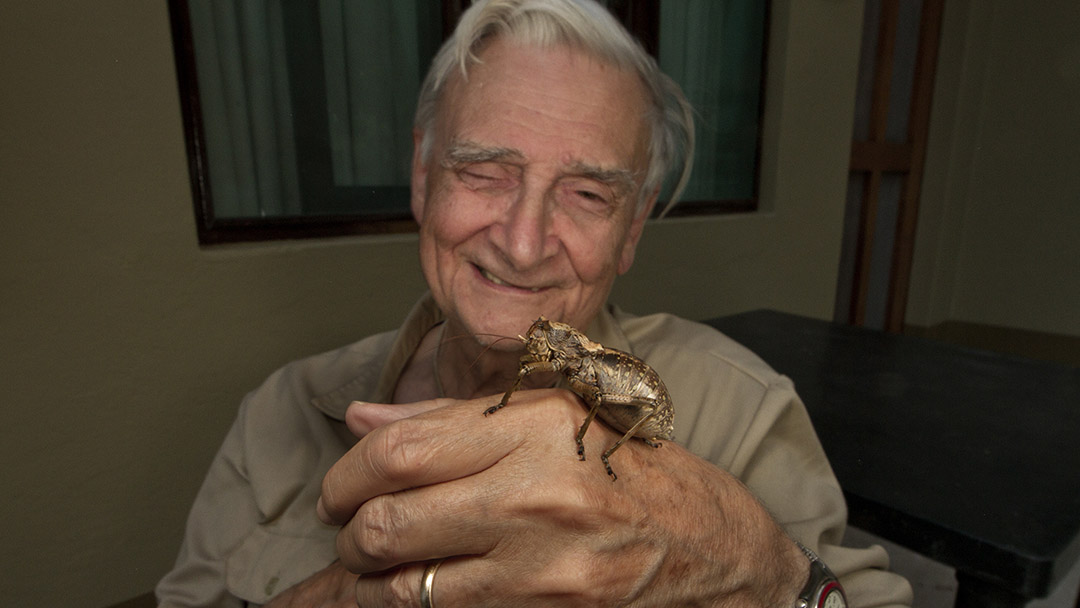
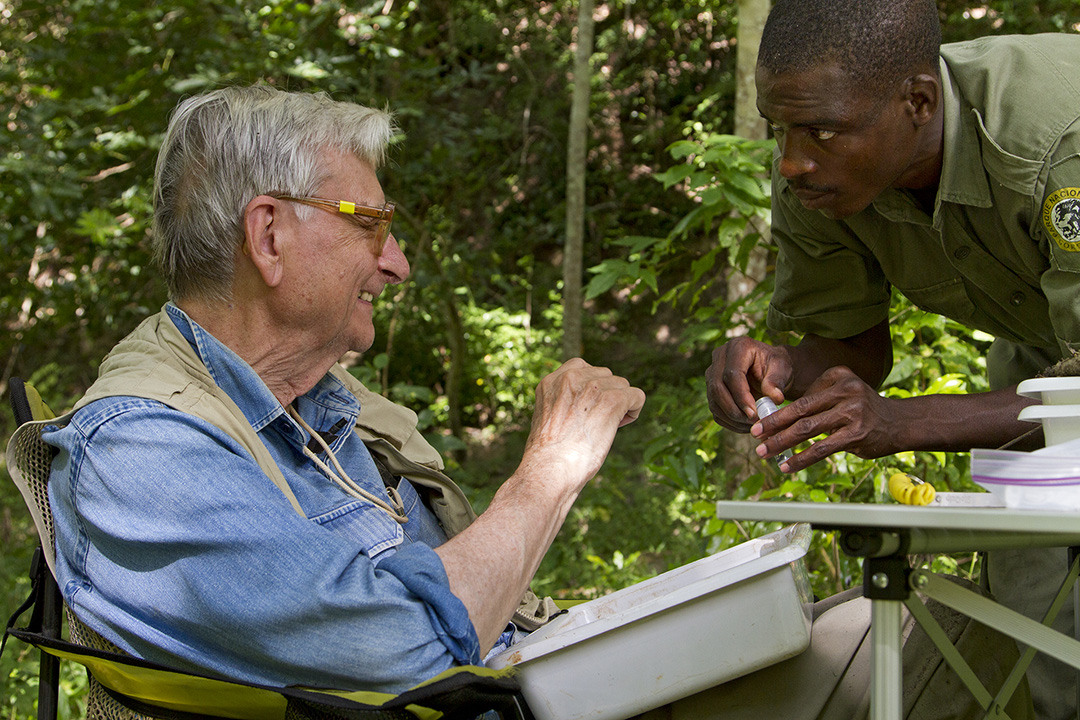
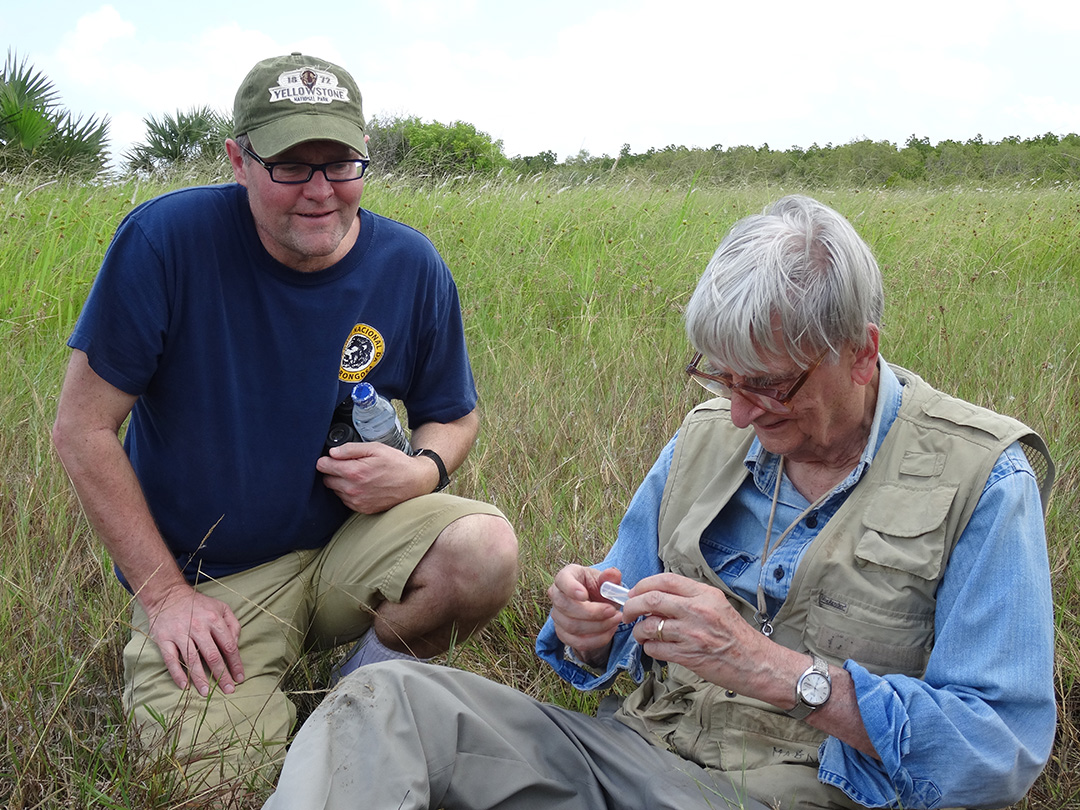
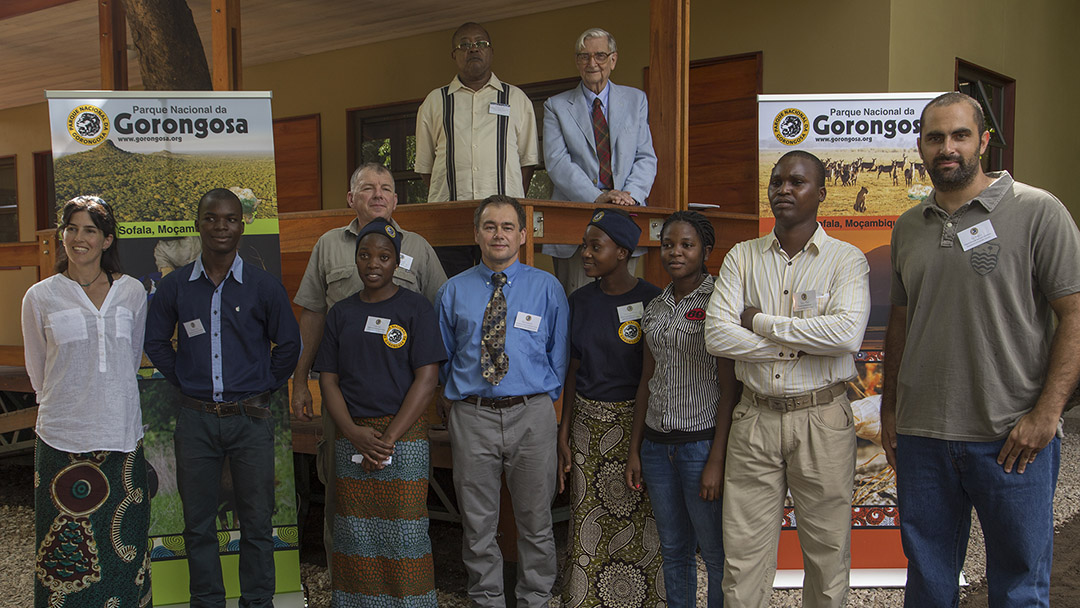
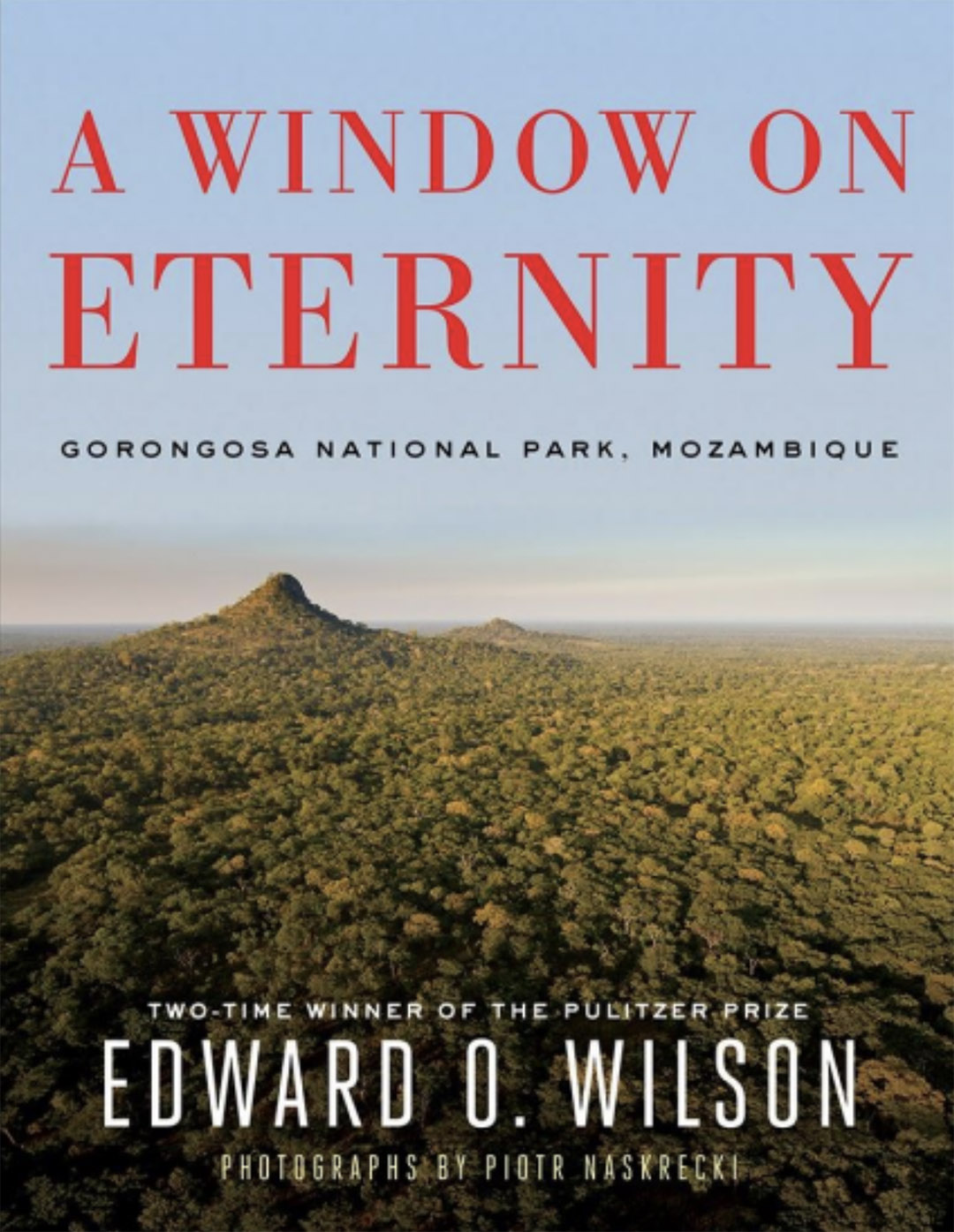
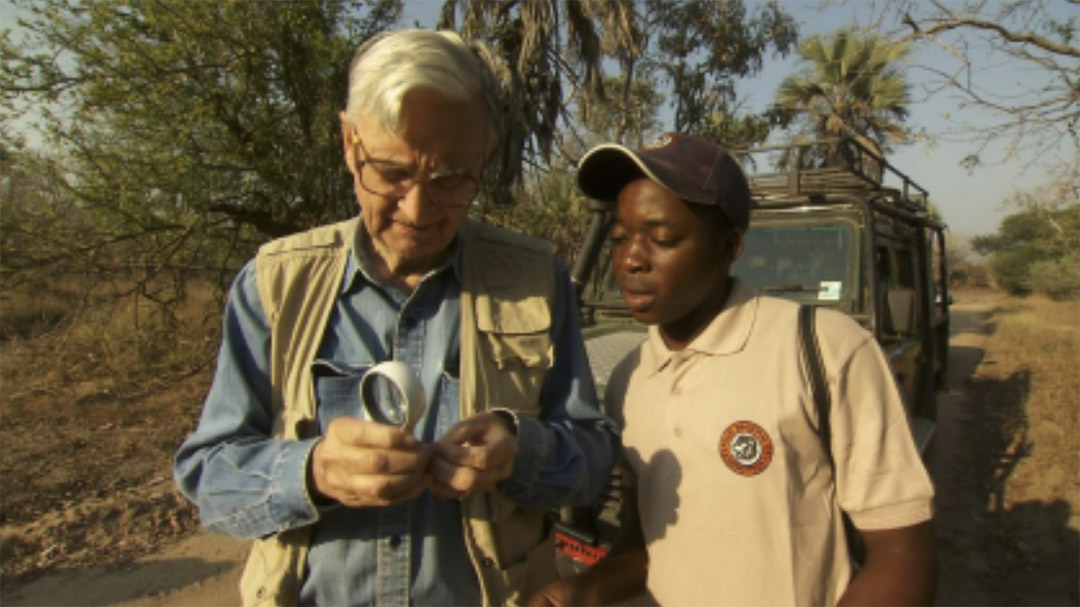
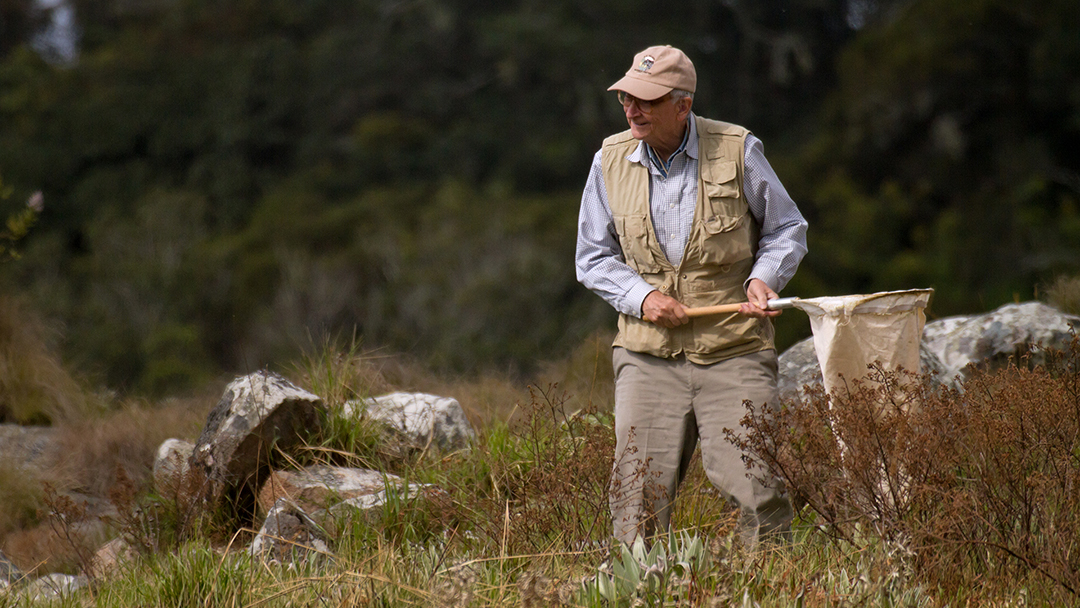
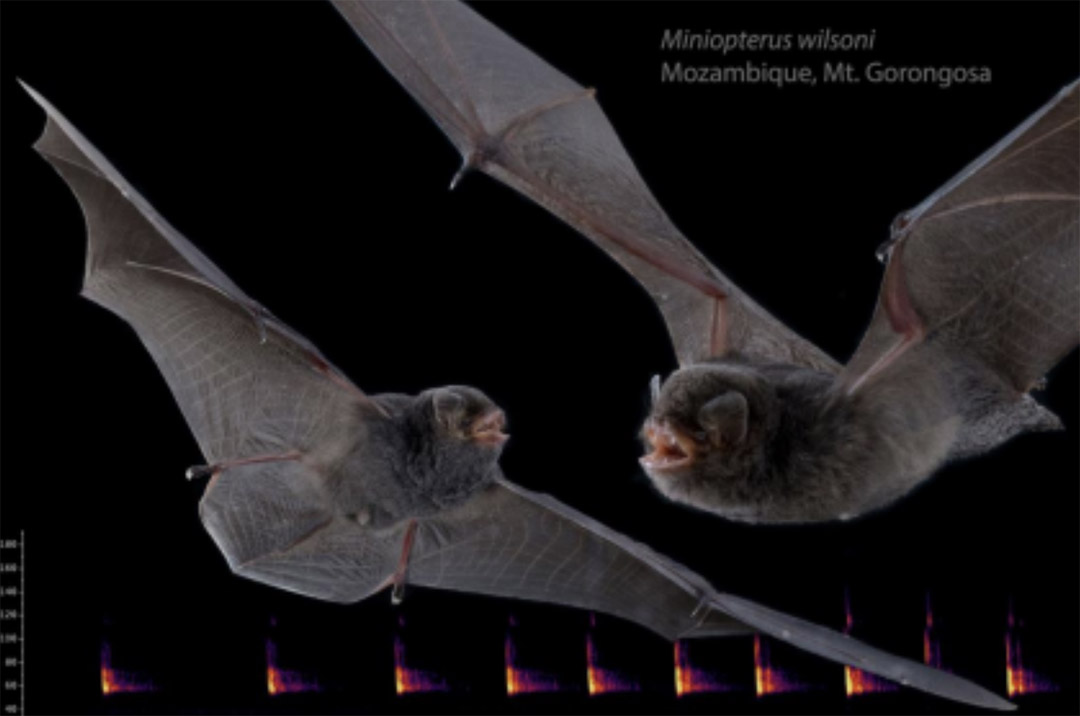
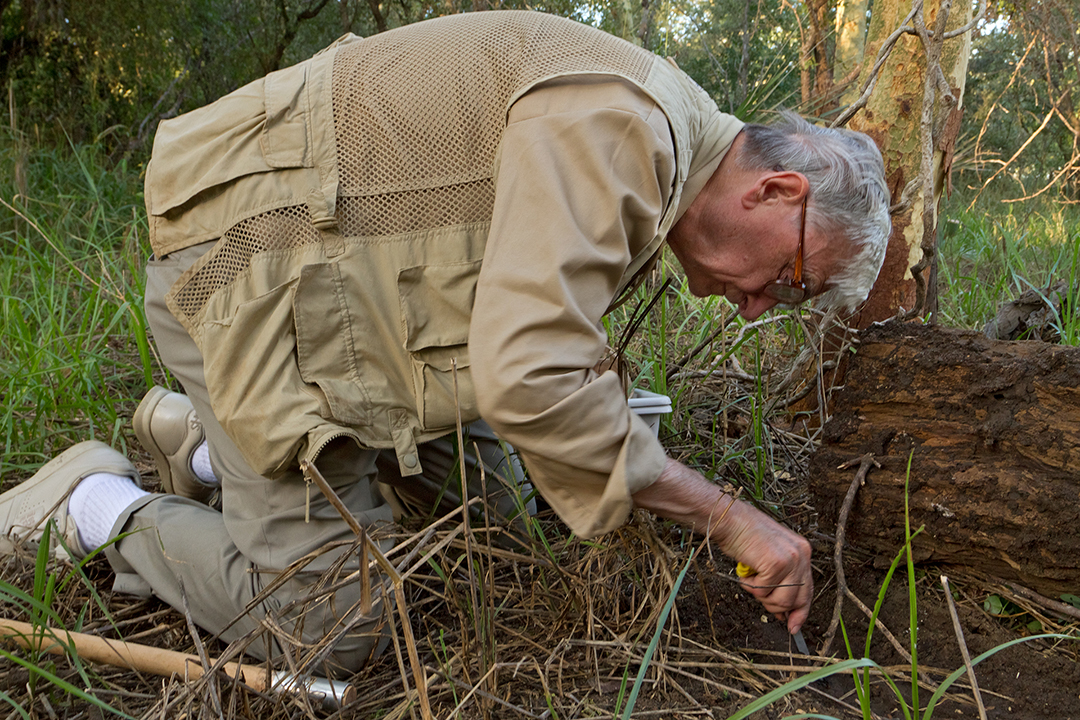
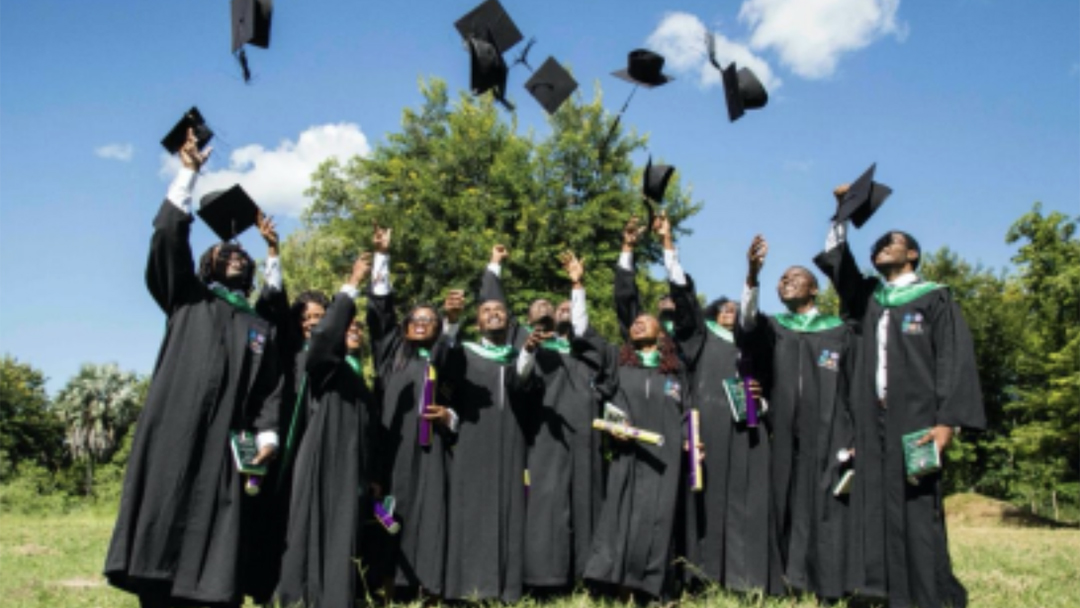
Thank you for this tribute, the world is sadly lacking people of this caliber and passion.
The tribute has only three photo’s, it looks as though about seven are missing.
Keep up the amazing work ………….all of you!
I am already subscribed to your website/news letter, lucky me!